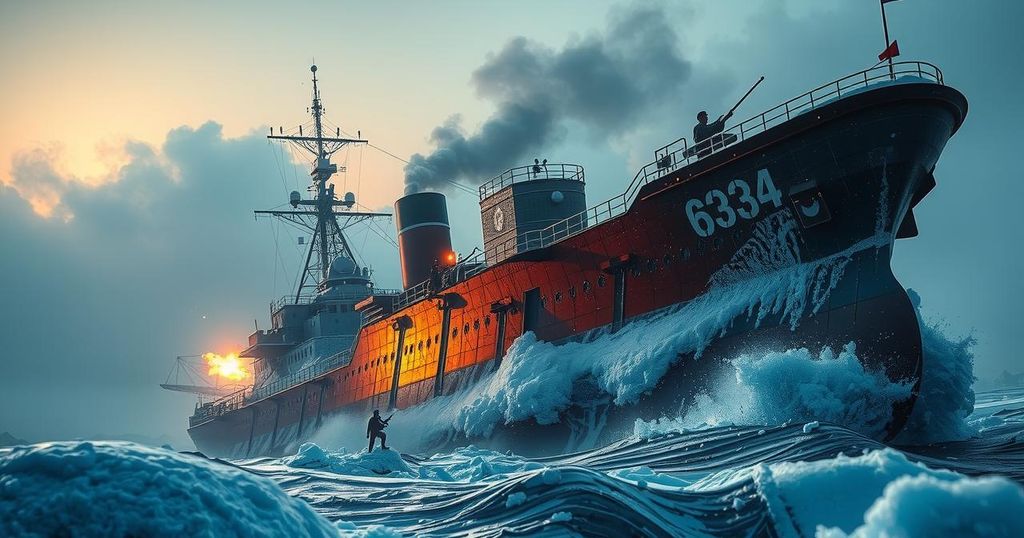Ukraine-Russia Conflict Escalates as Cargo Ship Sinks and Casualties Rise

The Russian cargo ship Ursa Major sank while allegedly on a mission to retrieve arms from Syria, amidst rising North Korean casualties in Ukraine’s conflict now exceeding 3,000. President Zelensky warns of intensified military ties between Moscow and Pyongyang, while Italy pledges continued military aid until 2025. Concurrently, Zelensky criticized Slovakia’s dependency on Russian gas, highlighting broader geopolitical security issues.
Recently, tensions have escalated following the sinking of a Russian cargo ship, the Ursa Major, which Ukrainian intelligence suggests was en route to collect weapons from Syria. The ship sank in the Mediterranean due to an engine room explosion, with two crew members reported missing and fourteen rescued. Concurrently, Ukrainian President Volodymyr Zelensky remarked that North Korean military casualties fighting for Russia have now surpassed 3,000, raising concerns about the potential for increased military collaboration between Moscow and Pyongyang, including the possible dispatch of additional North Korean troops and equipment.
Furthermore, Zelensky addressed the broader geopolitical landscape, maintaining that Ukraine lacks the necessary military strength to reclaim previously held territories. However, he has refused to cede land to Russia and has called for greater Western intervention. Italy’s government has progressed with military aid commitments to Ukraine, extending support through 2025, reflecting a continued united front against Russian aggression.
In a separate diplomatic context, Zelensky criticized Slovak Prime Minister Robert Fico for his reluctance to eliminate Slovakia’s dependency on Russian gas, which Zelensky considers a significant security concern for Europe. Despite offers of compensation for gas transit losses, Fico’s preference for Russian gas remains intact.
Amid such developments, the impact of the ongoing conflict is also poignantly felt by Ukrainian refugees, now marking another Christmas in the UK, underscoring the human cost of the war. Overall, these events signal ongoing complexities in military, political, and humanitarian realms amid the continuing conflict in Ukraine.
The article addresses the latest developments in the ongoing Ukraine-Russia conflict, highlighting significant military and diplomatic issues. The sinking of the Ursa Major represents a loss for Russia in terms of logistics and military supply efforts, while President Zelensky’s comments about North Korean troop casualties reflect the increased involvement of foreign militaries in the war. Italy’s steadfast military support underlines the international commitment to aiding Ukraine. Simultaneously, Zelensky’s interactions with European leaders like Fico indicate the nuanced challenges of energy dependence and geopolitical alliances at play during the conflict. Additionally, the sentiment of Ukrainian refugees emphasizes the lasting personal ramifications of the war.
In conclusion, the situation remains dire as the sinking of the Ursa Major adds complications to Russia’s logistics in the Mediterranean, while the increasing toll of North Korean troops in combat raises alarms about the extent of military collaborations. Zelensky’s determination to reject territorial concessions and call for enhanced Western support underscores Ukraine’s resilience amid significant challenges, including energy security discussions with neighboring Slovakia. The ongoing humanitarian impact is starkly illustrated by the experiences of Ukrainian refugees now far from home.
Original Source: www.independent.co.uk








